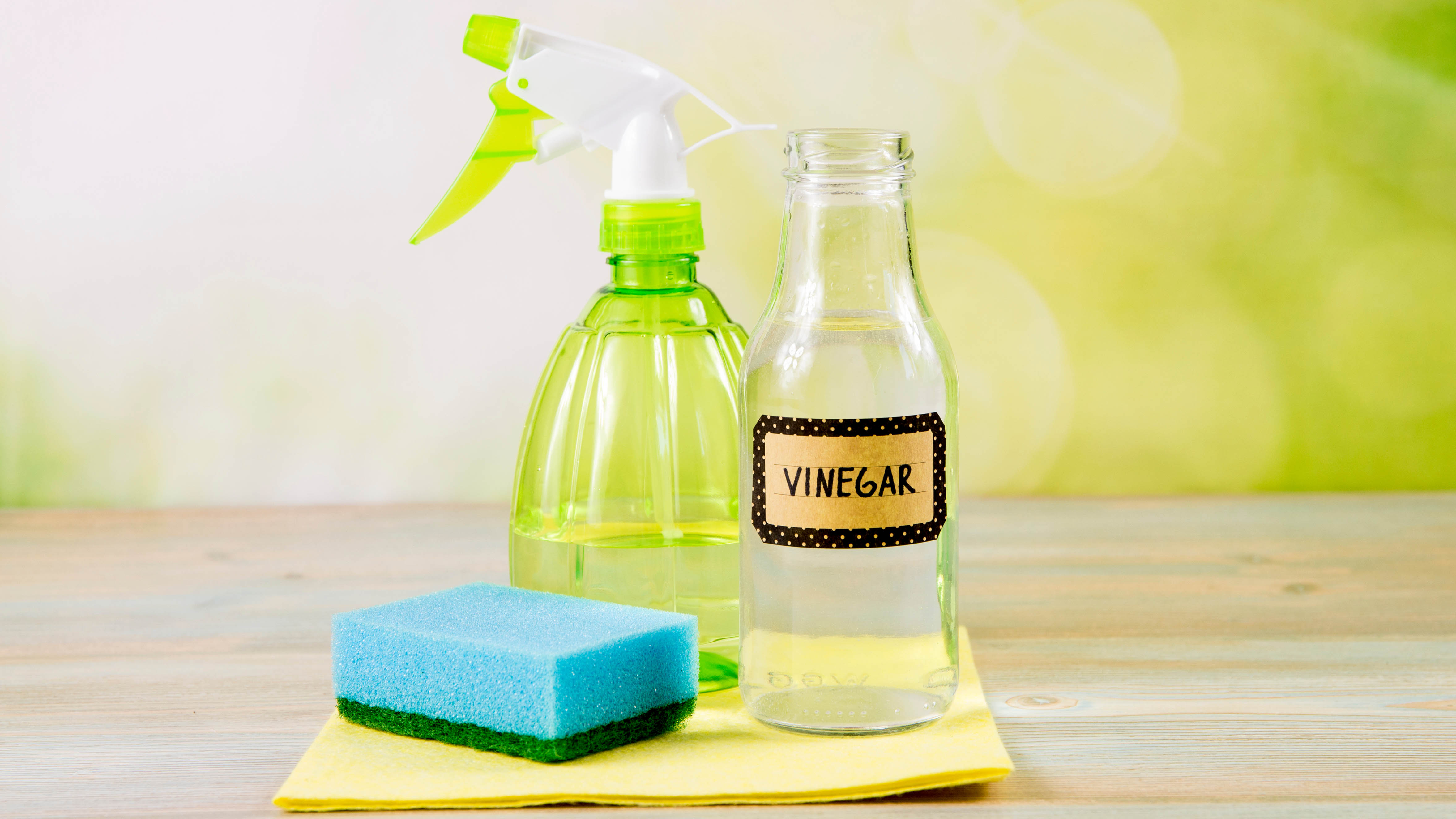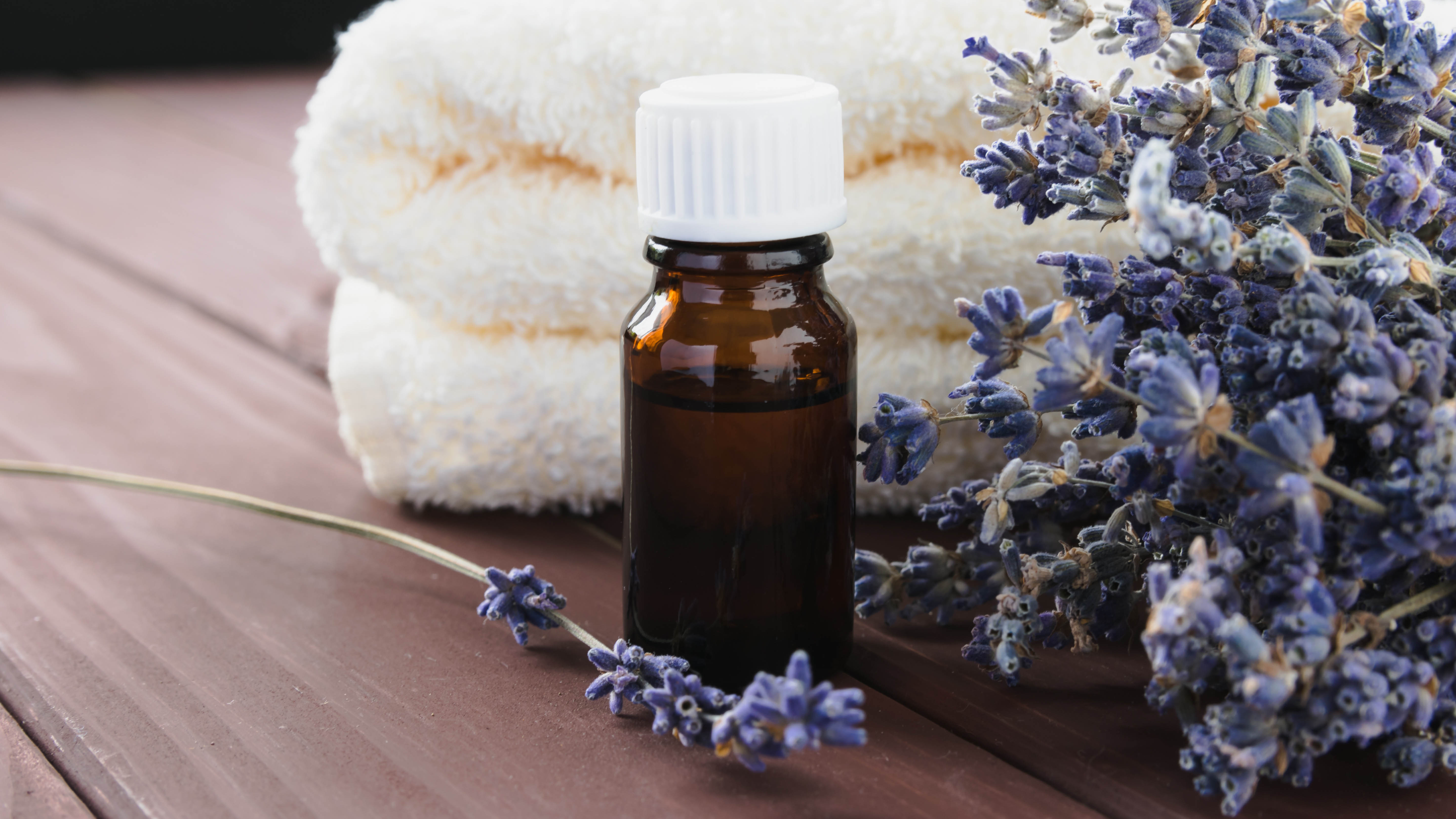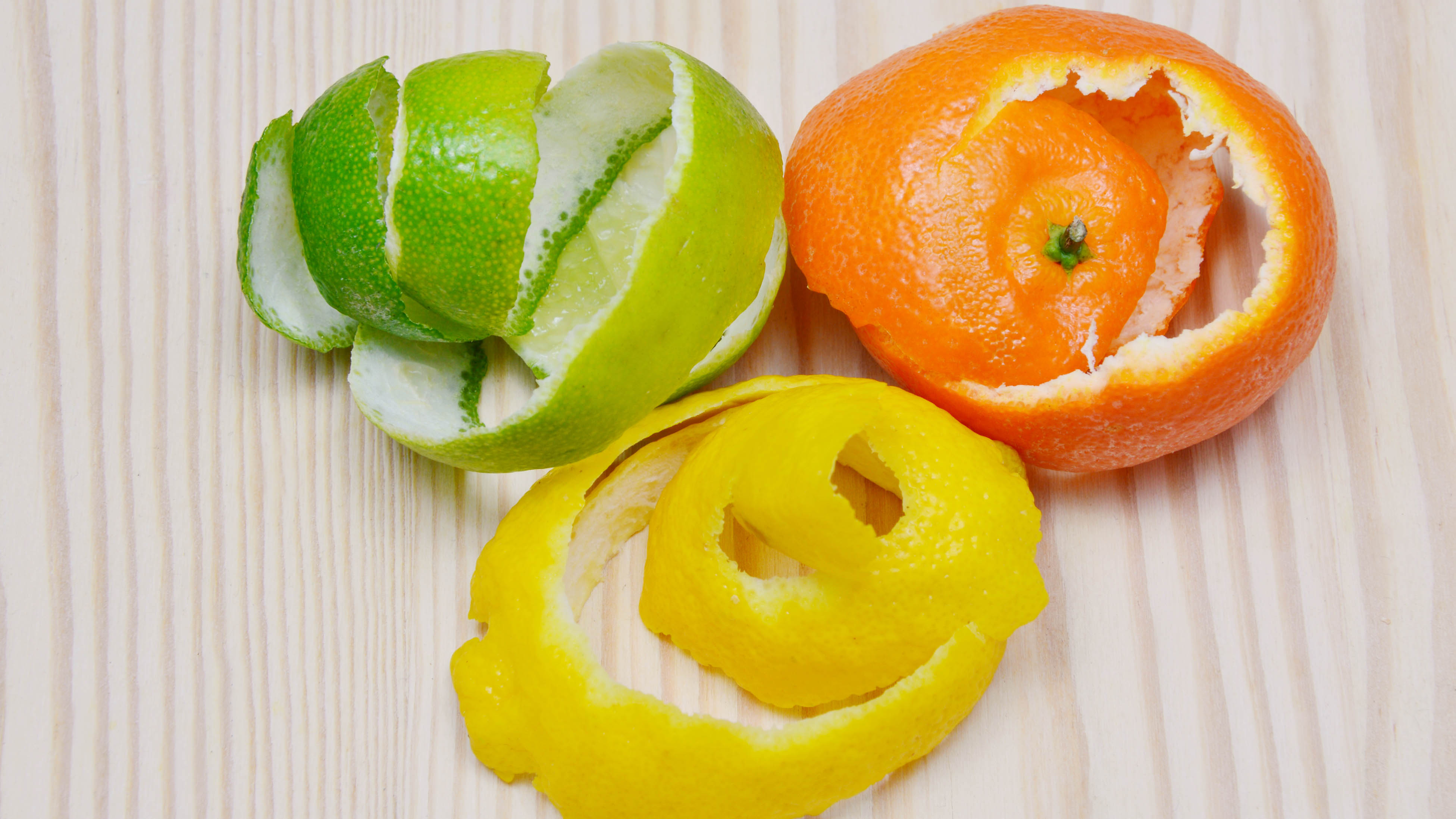How to clean with vinegar without the smell
Here’s how to stop vinegar from smelling as you clean

White distilled vinegar has become a reliable cleaner for households across the country. It can be used in all kinds of situations, from unclogging a drain to cleaning a glass stove. This is because it’s effective at dissolving stains, removing limescale and leaves streak-free results. On top of this, it’s a more sustainable option than using alternative chemical cleaners.
While the acidity of vinegar makes it such a good cleaner, this property unfortunately also adds a pungent smell. It’s so strong in fact, that it can deter some from using white distilled vinegar as a household cleaner, particularly if you’re cleaning in anticipation of guests. However, this doesn’t have to be the case. Here, we break down how you can neutralise the smell of vinegar and still clean with it. With these methods, there’s really no reason not to clean with vinegar.
Also, here's 7 reasons you should use vinegar in your washing machine and save money on buying detergents.
- Check out how to clean headlights
- Here's how to clean silver to restore its shine
Essential Oils

Essential oils
Empty spray bottle
OR
Herbs, citrus peels and spices
Mason jar
Strainer
Empty spray bottle
This is the most convenient method for masking the smell of vinegar as you can apply it immediately. All you need are essential oils, of which you can choose the scent(s) based on your preference. We recommend the Lagunamoon Essential Oils Gift Set ($9.99, Amazon) if you don’t already have this. To use essential oils, follow these steps:
1. Dilute your vinegar with cold water in an empty spray bottle. You can vary the measurements depending on how much vinegar you want, however for general guidance you can use ½ and ½.
2. Depending on the strength of fragrance from your essential oils, you’re going to want to add 10-20 drops to the solution. Start with 10, then seal and shake the bottle to combine and try a spritz to check the effect. Add more drops as required.
3. Label the bottle so you don’t confuse it in the future.
Sign up to get the BEST of Tom's Guide direct to your inbox.
Get instant access to breaking news, the hottest reviews, great deals and helpful tips.
That’s all you have to do. Just remember that this will never fully mask the vinegar smell, but it will certainly help keep it in check. If you’re not sure which fragrance of essential oil to use, we recommend a citrus, peppermint or lavender essence.
Herbs, citrus peels and spices

Alternatively, you can also use herbs, citrus peels and spices if you have those handy. Just bear in mind that this method requires 4-5 days to finish, so if you need the cleaner for the weekend, you will need to prepare it on the prior Monday. You’re essentially going to steep the vinegar with a mix of heavily scented herbs and spices to overwrite the aroma.
This is great because you can choose exactly what you want to use — any citrus peels, such as oranges, lemons and limes will work well. In terms of herbs and spices, think of everyday ingredients such as lavender, cinnamon, mint and rosemary for example. Just make sure you avoid any herbs with a dark, predominant color as this could dye your vinegar, and any surfaces you clean it with.
1. Find an empty mason jar and sterilize it if necessary in boiling water. Then leave it to cool completely.
2. Now you’re going to want to fill the jar to about ¾ full with a combination of your peels, herbs and spices. You will need the peels of about three oranges or four lemons for general guidance.
3. Now add your white distilled vinegar to the jar and fill it to the brim.
4. Seal it tightly and rotate it to mix.
5. Leave it to sit for 4-5 days, shaking it occasionally to further mix.
6. Once time is up, you need to strain the solution carefully into an empty spray bottle. If you remove the lid from your jar and notice the vinegar aroma is still strong, leave it for a further few days.
There you have it, a home-made scented cleaner.
Tips to help reduce the smell of vinegar as you clean
- Dilute it further — You may not need such a strong solution of vinegar to get the job done.
- Open windows and doors — Make sure anywhere you clean is well ventilated to help disperse the smell.
- Use an air purifier — Using one of the best air purifiers can help deodorize the room.
- Use baking soda — Baking soda will naturally absorb odors. Simply leave a bowl out for a couple of hours to absorb the smell.
As for other cleaning tips, check out this TikTok lemon hack to remove limescale on faucets, how to clean a showerhead to remove limescale and how to descale a kettle. Vinegar can also be useful for when it comes to knowing how to clean jewelry.

Katie Mortram used to be a Homes Editor for Tom's Guide, where she oversaw everything from kitchen appliances to gardening tools, as well as smart home tech. Specializing in providing expert advice for cleaning and home manintenance, she now works as Household Advice Editor for Good Housekeeping.
